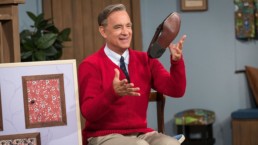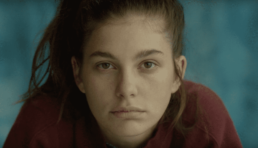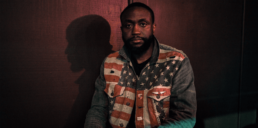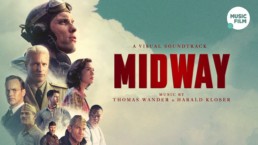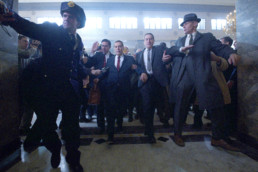'A Beautiful Day in the Neighborhood' Sparks Joy
One didn't need to grow up watching Mister Rogers' Neighborhood to understand his impact and contribution to making the world a kinder place.
With some creative liberty at the helm, A Beautiful Day in the Neighborhood tells the true story of the evolution between America's most lovable man and jaded journalist Tom Juno, a relationship that has become infamous in the life and legacy of Mister Rogers. Both misunderstood in their own way– one for being too empathetic and the other for being too selfish– the beauty of Marielle Heller's biopic lies in showing how a little love can go a long way.
Lloyd Vogel (Matthew Rhys), an agitated investigative journalist at Esquire magazine, is notorious for writing excessively critical articles about his subjects. When he is assigned a "puff piece" – a 300-word assignment on Mr. Fred Rogers for the magazine's American Heroes feature – Lloyd is both baffled and intrigued. His intentions to go deeper than the request and uncover any scandals that may be hidden about the nicest man in the world upsets his wife Andrea (Susan Kelechi Watson), who idolizes the TV personality. Upon their first meeting, Lloyd isn't convinced that Fred Rogers (Tom Hanks) is being authentic, questioning his ability to connect to any man, woman, and child. As the duo spends more time together, first out of obligation and then out of desire, Lloyd begins to see Mister Rogers in a new light, opening up his mind and heart in the process.
Marielle Heller's character-driven drama is rich in emotional tension and hits far deeper than traditional surface-level biopics. She examines the yin/yang of human behavior and subtly shows how no man, including Mister Rogers, can be happy all of the time. Lloyd leads with his anger and pessimism, and so his outbursts are expected. However, the darker, mysterious side to Mister Rogers is only touched upon. The final scene tells so much through the simplicity of playing piano keys, making it perhaps one of the most powerful moments in a film this year.
As expected, Tom Hanks is magnetic as the lovable Mister Rogers. It would be a huge disservice to classify Hanks' performance as an "imitation," he fully embodies every little detail and mannerism that made Fred Rogers iconic. The slightly uncontrollable body trembles that come with aging, the deeply-set eye wrinkles from smiling so large and so often, all these and more aide in Hanks' transformation into the beloved TV personality. Matthew Rhys, arguably the protagonist of the film, gives a stellar performance and nails every emotional arch. His vulnerability as a man who is lost and then found is unmatched.
For those who didn't have the pleasure of growing up with Mister Rogers on television, it might be beneficial to first watch Academy Award-winning director Morgan Neville's documentary, Won't You Be My Neighbor?. Neville's film paints a more intricate portrait of the man behind the persona, including personal anecdotes and character-building circumstances that are omitted in Heller's biopic. However, one doesn't necessarily need context to enjoy this film, we all know a good man when we see one and A Beautiful Day in the Neighborhood is a truly remarkable film about a truly remarkable man.
A BEAUTIFUL DAY IN THE NEIGHBORHOOD (2019)
Starring Tom Hanks, Matthew Rhys, Chris Cooper
Directed by Marielle Heller
Written by Micah Fitzerman-Blue, Noah Harpster
Distributed by Sony Pictures. 108 minutes.
Opening this Friday in theaters everywhere.
'Mickey and the Bear' Confidently Explores Toxic Love
A teenager is forced to parent her parent in the indie film Mickey and the Bear, the debut feature from writer/director Annabelle Attanasio.
Set in a small, isolated town in Montana, this character-driven drama tells the story of breaking a cycle of familial dysfunction in order to live life to the fullest.
Mickey Peck's (Camila Morrone) story begins on the eve of her 18th birthday. On a rare night out, away from eating fast food in their trailer home, Mickey and her dad Hank (James Badge Dale) indulge in a celebratory dinner, that is until the bill comes and Hank has no money to pay for it. His lack of responsibility and good judgment results in the duo skipping out on their restaurant bill, and just another illegal activity that Mickey reluctantly endures. This situation is all too typical for Mickey, who must assume a role that is more like her father's caretaker than his daughter. Hank is a Marine Corp. Veteran whose addiction to painkillers, subsequent PTSD from his days on the battlefield, and grief over his wife's death, has made it impossible for him to take care of his daughter, let alone himself.
Everything about Mickey and Hank's relationship is dysfunctional, the biggest culprit being uncontrollable addiction. Hank is addicted to pills, Mickey is addicted to being her father's rescuer, and together, they live in a constant cycle of frustration and hopelessness. Desperate to create her own path, Hank's emotional absence in Mickey's life forces her to grow up quickly. After attending school all day, she works at the local taxidermy shop for the necessary extra money. Her personal relationships are complicated too; when boyfriend Aron (Ben Rosenfield) begins showing qualities similar to those of her dad, Mickey is driven into the arms of the new student, Wyatt (Calvin Demba). When an opportunity arises for her to leave her hometown for the West Coast, Mickey questions whether she's capable of leaving behind all she knows for a fresh start, even though it's something she's wanted all her life.
In a confident feature film debut, director Annabelle Attanasio creates a female-empowered coming-of-age story that shines on all levels. Casting director Avy Kaufman has once again assembled a stellar cast, including breakout actor Camila Morrone. Her nuanced performance feels soaked in authenticity and she carries the emotional weight of the film effortlessly. James Badge Dale is also a force to be reckoned with. The quietness of the film and its surroundings in Anaconda, Montana is the perfect offset to the loud echos of Hank's mental illness, a complex juxtaposition. Although the message "life isn't equal or fair" is evident throughout the film, Mickey and the Bear ultimately proves that by dispelling the thought that we are owed something, it is possible to live an authentic life, on our terms.
MICKEY AND THE BEAR (2019)
Starring Camila Morrone, James Badge Dale
Directed by Annabelle Attanasio
Written by Annabelle Attanasio
Distributed by Utopia. 88 minutes.
Opening this Friday at Landmark's NuArt. In theaters nationwide November 29th.
The Artistry and Depths of 'Waves' Will Leave You Breathless
There's a line in Kanye West's 2016 album, The Life of Pablo, that says, "Waves don't die, Let me crash here for the moment."
The ebbs and flows of life are inevitable, but it's resilience that will make or break a man. This is the takeaway from director Trey Edward Shults' Waves, who returns home to A24 with his third feature film. Pitch-perfect in every way, Waves is a mesmerizing portrait of a hard-lived life and the discovery that every day is a new opportunity for compassion, acceptance, and peace.
In an intensely moving performance, Kelvin Harrison Jr. (who previously worked with Shults on It Comes at Night) plays Tyler, a high school athlete with a promising future, a steady relationship, and a supportive family. His father (Sterling K. Brown) takes the tough love approach to parenting, riding his son to always push harder, and faster. "We are not afforded the opportunity of being average," he reminds Tyler, and that despite their suburban middle-class status, society will always identify them as only African-American. Tyler escapes the pressure in his home life by spending time with his girlfriend Alexis (Alexa Demie), riding in cars with the music blaring, and making out on the South Florida coast. High school love is all-consuming, and theirs is no different. However, when a shoulder injury sidelines Tyler from his college prospects, his life begins to spiral out of control.
Read More: A Beginner's Guide To: Kelvin Harrison Jr.
Waves is split into two acts, and the second half of the film focuses on Tyler's family who is left to deal with the aftermath of his circumstance. Newcomer and breakout star Taylor Russell is the protagonist of the second act. Russell plays Tyler's younger sister Emily, and she is burdened with the emotional weight and societal exile Tyler left her with. She finds comfort in the arms of Luke (Lucas Hedges), a well-intentioned guy who shares her grief and offers her a healthy escape. Their relationship is pure and allows for Luke and Emily to heal both separately and together.
Waves' boundary-pushing cinematography and constant fluidity generate a feeling of unrest, excitement, and energetic catharsis. From 360 degree turns to controlled yet constant pans and rotations, DP Drew Daniels (who also shot Euphoria) makes every scene come alive. An overly saturated red color pops throughout the film in the most unexpected of ways. From the opening title to Tyler's bedroom curtains, Alexis' prom dress to sirens and blood, this color infiltration is intentional. Red evokes feelings of passion, anger, and strength, beautifully mimicking the emotional spectrum and character arch of both Tyler and Emily. Further aided by seamless editing by Isaac Hagy, a chilling score by Trent Reznor and Atticus Ross, and set to the decade's best soundtrack (stream it here), Waves is a full-body, full-sensory experience.
Like the title suggests, Waves will put one through a range of emotions; first comes the rumblings of uncertainty, then the crash of chaos, all to be swept away and reset to calm, steady waters. This rebirth cycle is a reminder that life goes on, despite the hardships, tragedies, and tears that act as roadblocks. Life stops for no man, and the awareness that we are in control of our actions and intentions makes navigating the hard times a little more bearable.
135 minutes. Opens this Friday at ArcLight Hollywood and The Landmark.
A Beginner's Guide to: Alma Har'el
Just a quick scroll through her Instagram, you'll see countless red carpets and interviews promoting her new film, Honey Boy, plus various calls to action empowering female directors in support of her nonprofit company Free the Bid and its sister site, Free the Work. It's a wonder when this superwoman ever gets a minute of sleep.
In addition to her impressive directing reel, Har'el founded Free the Bid in 2016, a website-turned-movement that calls for a more transparent and equal representation of women in the commercial advertising/tv hiring process. Championing the phrase "Diversity = Creativity," Har'el has set out to change industry standards by ensuring Ad agencies and brands get (at least) one woman director's bid on every job (which, shockingly, was a revolutionary idea until recently). Free the Bid has since expanded to include Free the Work, a community database of underrepresented creators intended to help both artists and brands discover quality talent. Always a vocal advocate for women and a beacon of light for creators everywhere, Har'el debuted her narrative feature, Honey Boy, at the 2019 Sundance Film Festival (which has steadily remained in my top ten films of the year).
In celebration of this trailblazer, here are three works by Alma Har'el to check out before you watch Honey Boy, in theaters this Friday.
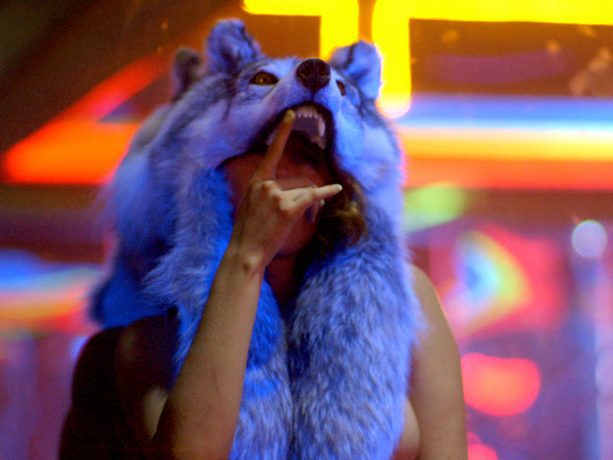
LoveTrue
A visually stunning blend of documentary and surreal dramatization, LoveTrue, executive produced by Shia LaBeouf, profiles three young adults facing personal heartache at various stages of their lives. A young stripper with low self-esteem believes no one will love her the way her boyfriend does, and therefore is afraid to fully be truthful about her work conditions. A single-dad surfer who was blindsided by a cheating scandal claims, "I don't really know what love is, I guess. I thought I did." A teen musician whose life is centered around her family's band questions her faith after her dad disrespected her mom, questioning, "I don't understand how Mommy can have faith in someone who's not faithful."
Showing the dark side of vulnerability and fully trusting someone with your heart, Alma knows how to tap into her subjects' innermost emotional faucet and turn it up to full blast. LoveTrue is a poignant exploration of emotions that suggests that maybe true love isn't all it's cracked up to me. Harsh, but realistic.
LoveTrue is available to stream on Netflix.
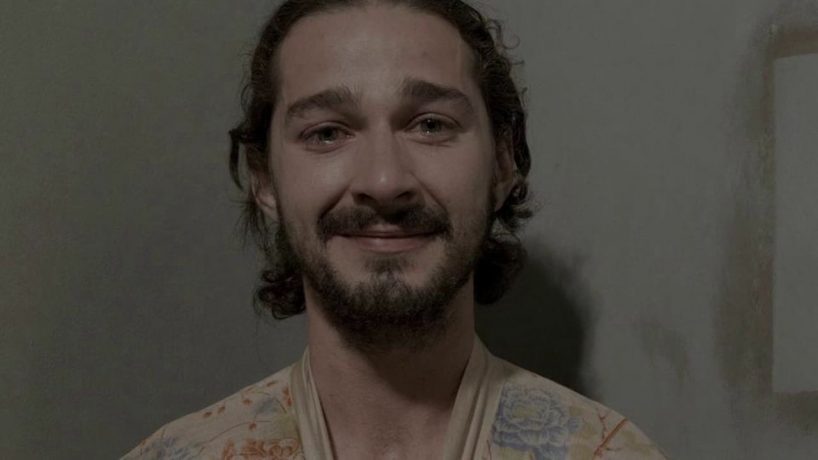
Sigur Rós | Fjögur Píanó
One of my favorite bands of all time is the Icelandic post-rock group, Sigur Rós. Known for their limitless creative expression and beautiful atmospheric soundscapes, they are my go-to artist for when I need to reconnect with myself. For the accompanying music videos for the release of their 2012 album, Valtari, Sigur Rós went the unconventional route by putting all of the creative control in the hands of various filmmakers. Their brief stated: "We never meant our music to come with a pre-programmed emotional response. We don’t want to tell anyone how to feel and what to take from it. With the films, we have literally no idea what the directors are going to come back with. None of them know what the others are doing, so hopefully it could be interesting."
Har'el took the track Fjögur Píanó and created a stunning experimental short film that stands as one of my favorite music videos to date. Her constant collaborator Shia LaBeouf partners with actress and dancer Denna Thomsen as they play a couple experiencing the emotional journey of a relationship through interpretive dance. Raw and uninhibited (including full-frontal nudity), the film is a delicate ballet of vulnerability, which Har'el describes as a "shifting relationship beautifully charted by the shifting of their bodies."
Fjögur Píanó is available to stream on Vimeo. The "Making Of" video is also available here.

Bombay Beach
2011's Bombay Beach is Alma Har'el's debut feature film and put her on the map of talents to watch. A breakout of the Tribeca Film Festival, the 86-minute experimental documentary profiles three people of various ages living in one of the poorest communities in southern California: Bombay Beach, located on the shores of the Salton Sea. There are few opportunities for personal or professional growth here as the residents of Bombay Beach, including a high school-aged NLF hopeful, an overly-medicated young boy and his family with a history of neglect, and a bigoted older man who illegally sells cigarettes, give audiences a glimpse into their very humble lives.
Har'el shows how unforgiving the desert can be as she combines fly on the wall filmmaking with interspersed choreographed and stylized vignettes. Songs by Bob Dylan and original songs by Beruit play to the film's sense of desperation while offering glimpses of hope and resilience. Bombay Beach is an eye-opening documentary that shines a nonjudgemental light on a group of misfits and is a perfect complement to the themes in Honey Boy.
Bombay Beach is available to rent on Amazon.
Byron Bowers: "I'm still human. I still feel sad. And I'm in a good movie."
I'm sitting in my office in Koreatown when my phone rings. Comedian/actor/multi-hyphenate Byron Bowers is on the other line, calling from a quiet location in a Beverly Hills hotel during the stacked press day for the highly anticipated Honey Boy. It's a beautiful sunny day, high seventies in early November, and, no joke, birds are chirping outside the window. I'd imagine this is the quintessential "made it moment" for any typical Hollywood actor, but there's something different about Bowers. He's not "typical." I came to discover through our 15-minute chat that Bowers, who has been described by LA Weekly as "A Comic Who's Got Big Ideas and Big Plans to Go Big Places," is an extremely humble and relatable man. He is grateful for the opportunity to do what he loves and sincerely wants to make a difference in every person's life who watches his films or his stand-up sets. As an entertainment journalist, Byron Bowers is a breath of fresh air.
In our exclusive interview, we talk about growing up with a schizophrenic father, working with director (and girlfriend) Alma Har'el, and the thing that makes him happy.
I absolutely loved this film. I saw it at Sundance earlier this year and it blew me away. There was a standing ovation and everyone in tears. It was just fantastic. What has this process been like for you, from Sundance up until now?
Oh, it's been a ride! That was my first time at Sundance and after the film, I remember taking a meeting with an agency (that I've now signed with), and they were blown away by it. I really didn't know what was going on, I'm like, 'Oh, y'all liked it. Oh, that's cool.'
It's just been a ride getting things together and getting projects off the ground. Closer to the release we're hitting other film festivals in Canada, New York, everybody's giving this film standing ovations and they're teary-eyed after the film. I'm like, man, this is a beautiful project right here. If I could do projects like this, I think I will be happy.
Yeah, absolutely. And I think everyone that watches this film takes away something different and unique to their personal life experience. I read that you grew up a schizophrenic father, paralleling Otis' upbringing. Did you see yourself in Otis?
I did. Once I read the script, I knew this story had to be told because it is an insight into somebody whose life isn't based in reality. I feel like a part of my life wasn't based in reality. Before I shot this film, I was questioning what was real or what happened in my life, and then to read a script where you have a kid who, as an actor, part of his life isn't real either and is the child of an addict himself, gave me empathy for who Shia was and let me see how similar we are.
I read this quote once that asked, 'Do you have to be sad to write a sad song and happy to write a happy song?' I found it interesting to think about as an artist, how your circumstances affect your art. Do you think your upbringing has impacted the artists that you are today?
I think it gave me a different outlook on life. And the thing is to celebrate your flaws. That's how I look at it now, celebrate your uniqueness. We all got a story, some good, some bad, but we all get to experience life.
But yeah, it shaped my point of view, and it allowed me to think differently. And I use that on stage. I understand there are different layers to my life; I'm a person, I'm black, I'm a child of an addict. I'm all these other things. Because my father lived in different dimensions, I'm allowed to travel amongst all those spiritual planes, so to speak. So yeah, it definitely affects me on different levels. Even the jokes that I do and the material I tell, I have a different point of view.
I was able to rewrite my part so that character is a part of me. So I will never let go of that person...
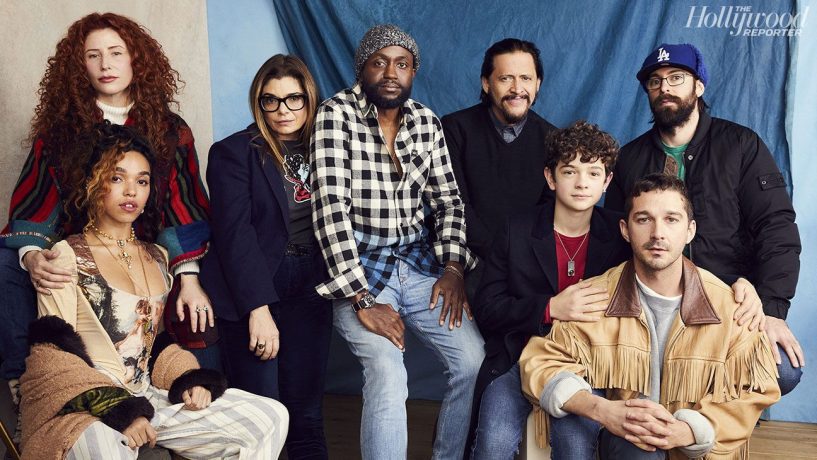
Read more: A Beginner's Guide to: Alma Har'el
Yeah, that's fascinating. And this is the perfect movie to express all of those emotions, especially with Alma Har'el [director] being who she is - this amazing badass woman. I'd imagine the set felt safe to work through those feelings. Can you describe the on-set experience and your relationship working with Alma?
Alma and I have been dating for four years. This experience was having to really listen to her and trust her with my art, which I've never had to do before. If I had a question about how things were, I learned to not question it. You don't tell the director what she should do, you know? We're not at home anymore, we're at work! And I'm like, Oh, snap I had to learn that on the fly.
Laughter
She gave the actors the freedom to really be the character. It's not about the lines or hitting the mark. It's just 'be you walking around as this person.' So that allowed the movie to be very authentic.
Is this a character that you're going to miss?
I'm fortunate because I was able to rewrite my part so that character is a part of me. So I will never let go of that person, that's myself. It's just a marker in time of what I was going through, like my cousin who is here with me today, he was in prison when we shot the film. I had guilt for living the life I lived when my cousin and I had two addicts as parents. And our lives are now so different. Those are the things that will always be the place markers in my life.
Wow, that makes this film even more powerful.
Yeah, I was given the freedom to put not my story, but my essence into the character. It suits me because I live in California, I'm originally from Georgia, and California feels like rehab or jail at times because it's so isolating and lonely.
When I'm doing a set, I'm not only making you laugh anymore, you're going to feel a range of emotions a Byron Bowers experience.
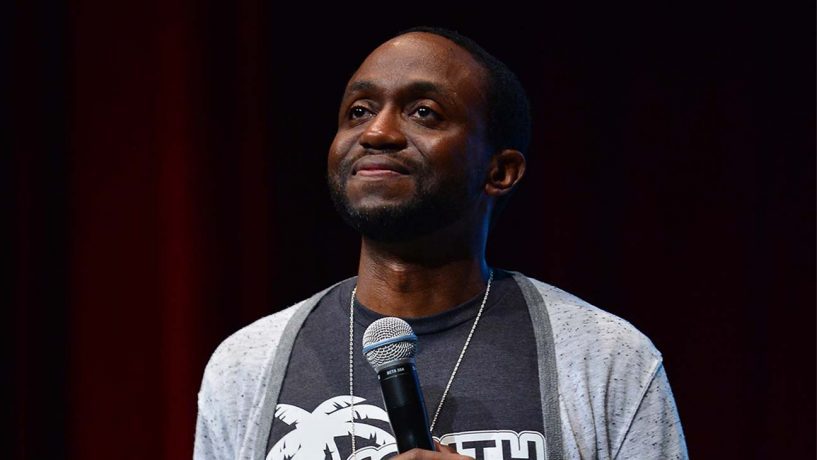
Absolutely. I'm born and raised in California and still struggle with the LA pressure and isolation.
Yeah.
As an artist, a comedian, and an actor, how do you best feel like you express yourself? Is it getting lost in a role or being on stage and telling your life story?
I think telling my story is the most cathartic thing. I went from joke-telling to storytelling, and I see how it affects people differently. When I'm doing a set, I'm not only making you laugh anymore, you're going to feel a range of emotions a Byron Bowers experience. This film has shown me that I can have other outlets to reach people and tell stories.
Aside from your career, which is incredible, what brings you joy?
It's not the "career" part, it's more of you all following me on a journey. I could be vulnerable and show you that it's not a career, like, I don't know how some of these things are happening. All I have is what I have and look where it's gotten me, and I want you to do the same thing because it could change your life. I want people to get that from me, you know?
I'm still human. I still feel sad. And I'm in a good movie. And it's OK to be sad because we all get sad. That's what I want, for people to feel those things, to experience life for themselves and live it because this is all we have.
The 'Midway' Soundtrack Soars with Battle-Cry Beats
Filmmaker Roland Emmerich–whose repertoire includes legendary films such as Independence Day, Godzilla, and The Day After Tomorrow–returns to the big screen with the historically-rooted wartime drama, Midway. Set in World War II, Midway is based on the events of 1942's attack on Pearl Harbor and the subsequent "Battle of Midway," in which American and Japanese fighters battled nonstop for four consecutive days. To bring this tension to cinematic life, Emmerich enlisted the creative talents of longtime collaborators and composers Thomas Wander and Harald Kloser.
In this exclusive look at Midway's visual soundtrack, debuting on Cinemacy this morning, Wander and Kloser take us on a journey through the sights and sounds of the film, told through untraditional orchestral strings and battle-cry beats. Singer Annie Trousseau (formerly of the pop group Eden's Crush) uses the passion of Edith Piaf, the glamour of Marlene Dietrich, and the moodiness of Billie Holiday as she lends her unique vintage feel to two of the twenty- three songs featured on the soundtrack.
The film, distributed by Lionsgate and starring Woody Harrelson, Luke Evans, Nick Jonas, and Mandy Moore, premieres in theaters this Friday, alongside the soundtrack release via Music Film Recordings.
'The Irishman' Review: Scorsese Contemplates a Lifetime of Crime
At 3 hours and 29 minutes long, with an estimated $159,000,000 budget, and boasting a legendary cast led by one of the greatest living directors of all time, the epic nature of Martin Scorsese's latest film, The Irishman, is nearly unfathomable. Quite literally, it's a film with the scope and ambition of being a masterpiece. Scorsese's mob saga is a tour-de-force that leaps through decades to tell a story that is cinematically brilliant and surprisingly, one of his most emotionally introspective films.
The Irishman, inspired by true events, is told through the point of view of the film's protagonist, Frank Sheeran (Robert De Niro). Confined to a nursing home and facing his mortality, Frank begins to recount his life's story, which Scorsese shows through an expertly intercut series of flashbacks. Starting with Frank's earliest days, we see him driving trucks as a typical blue-collar worker. After unexpectedly linking up with crime lord Russell Bufalino (Joe Pesci) and delivering on personal "jobs" for the mobster, Frank finds himself in his inner circle, quickly climbing the ranks from family man to hitman.
Loyalty and discretion – the traits Bufalino admires so dearly in Frank – are also precisely the traits that union boss Jimmy Hoffa (Al Pacino), President of the International Brotherhood of Teamsters, is looking for in a right-hand man. The hot-tempered and theatrical Hoffa and the cool and collected Frank are on opposite sides of the "composure" spectrum, yet they take to each other instantly and build trust as the years go by. However, good times in the world of organized crime don't last long, and the organization's corrupt inner workings, shady political connections, and dangerous rivalries continue to keep Frank and Hoffa on edge, all leading to the infamously unsolved mystery of Hoffa's disappearance.
While the film evokes all of the incredible period-piece imagery and superb direction that audiences have come to love and expect from Scorsese, The Irishman is also surprisingly introspective, as he examines death and isolation in a closer way than ever before. Of course, plenty of humor is incorporated into the script – which is fantastically acted through further performances by Harvey Keitel and Ray Romano (although I wish the women had more than just a couple scenes with even fewer lines) – but it's the film's quieter moments that make it so unique. De Niro's performance – or performances, plural, as he plays Frank through many years of his life with the help of CGI facial mapping – is sublime.
For Netflix, The Irishman is last year's Roma: a big-budget picture helmed by one of the most respected artists of our time, and at the moment, an obvious front runner for nominations across the board come awards season. If you're able to see this film in theaters, I highly recommend it. On the big screen, it's much easier to immerse yourself into the film for its entire duration (I fear an at-home Netflix watch will lead many to pause the film and interrupt the experience). But either way, Scorsese's latest is undoubtedly among his best and deserves to be seen in any way possible. – Morgan Rojas
THE IRISHMAN (2019)
Starring: Robert De Niro, Al Pacino, Joe Pesci
Directed by: Martin Scorsese
Written by: Steven Zaillian
Distributor: Netflix
Running time: 209 minutes
Playing: In select theaters on November 1 and on Netflix November 27
https://www.youtube.com/watch?v=WHXxVmeGQUc
In 'The Kill Team', Not All Soldiers Are Saints
In 2013, writer/director Dan Krauss's The Kill Team won Best Documentary Feature at the Tribeca Film Festival. Six years later, Krauss returned to Tribeca to debut his cinematic interpretation of the documentary's jarring events – the execution of innocent Afghan civilians by a group of U.S. Military soldiers – in his narrative feature film of the same name. The Kill Team may not uncover new information about these horrific stains on our military's past, but the star power attached may help this story reach new audiences in hopes that history doesn't repeat itself.
Impending deployment to Afghanistan, Andrew Briggman (Nat Wolff) is a born leader ready to join the front lines. Shortly after arriving at base camp, his squad is introduced to Sergeant Deeks (Alexander Skarsgård), a commanding figure who makes his goal very clear: "We kill people, that's what we do." Deeks is blunt when it comes to stating his position, riling up the soldiers and creating a tense, testosterone-filled atmosphere. This is far beyond fraternity bullying as the squad members unleash their aggression by killing innocent civilians with actions that were encouraged by Deeks himself. Troubled by his association with the murders and burdened by guilt, Briggman begins to have second thoughts about the intentions of his commander and the purpose of the mission at large.
The idea of the "hero soldier" that Briggman once aspired to be, turns into an illusion before his eyes. Instead, he now finds himself in a moral tug of war between what he knows is right vs the consequences of betraying the trust of his military brothers. Briggman questions: should he do the right thing and put himself in danger or shut up and deal with it? This hypothetical question further illustrates that the effects of war aren't just from physical battles, but mental ones as well.
Nat Wolff's portrayal of a young soldier fighting through his worst-case scenario creates an emotionally deft performance. His vulnerability remains at the surface throughout the film's entirety, making him easy to root for despite his conflicting behavior. Alexander Skarsgård's dark charisma is frightening as we can easily understand how these impressionable soldiers fell under his macho spell. The Kill Team is not just another war movie; this time, the enemy is the home team. The biggest takeaway here is an awareness of the awful, yet real-life events, that took place not that long ago, and the harsh realization that not all soldiers are saints. – Morgan Rojas
THE KILL TEAM (2019)
Starring: Alexander Skarsgård, Nat Wolff, Adam Long
Directed by: Dan Krauss
Written by: Dan Krauss
Distributor: A24
Running time: 87 minutes
Playing: In Theaters and On Demand October 25

